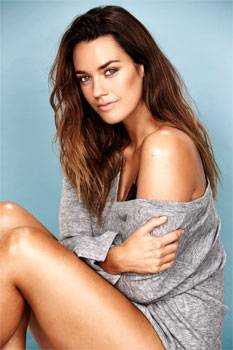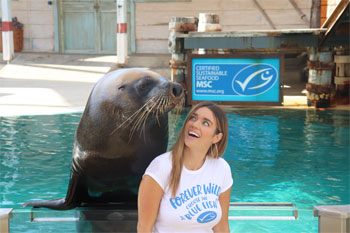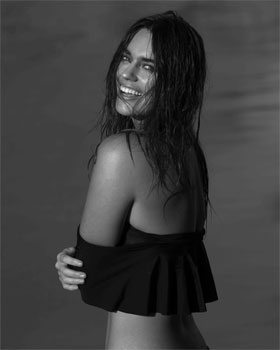Laura Wells Sustainable Seafood Interview

Marine Scientist and Model Laura Wells
International non-profit organisation the Marine Stewardship Council (MSC) along with Marine Scientist and Model Laura Wells is highlighting the vital role Australians can play every day to help keep our oceans healthy and teeming with life, with the announcement of Australia's first ever Sustainable Seafood Week.
MSC and Laura, is calling for consumers to be informed on how to make sustainable seafood choices in order to maintain the health of Australia's native ocean life. The next decade of fishing policy will be crucial in helping to ensure the food supply of nearly one billion people who depend on seafood as a primary source of protein, mostly in the developing world.
 Interview with Laura Wells
Interview with Laura Wells
Laura Wells is an Environmentalist, presenter and one of Australia's top plus size models. Holding degrees in both Biology and Law, qualifications in Environmental management systems and studying a Diploma of Paramedical Science, Laura is also an active board member of the Cook Islands Whale research team alongside being an ambassador for several different environmental organisations. Laura's passion for the environment, love for the ocean and interest in climate change has led her to become a positive role model, advocate and ambassador for change. Laura's goal is to educate individuals allowing them to understand that their individual actions do in fact make a difference and that ultimately we are all the creators of our own future.
Question: How did you become a Marine Stewardship Council ambassador?
Laura Wells: I have been an ambassador for the MSC for the last few years brought about by a mutual understanding of just how important our oceans are for the future and a passion for educating people on how they can make a difference. The MSC are providing a tool and solution, with its blue eco fish tick, for the everyday person to use their consumer powers for good and create a sustainable future for all and I believe this is imperative for our oceans.
Question: What do you hope to achieve in Sustainable Seafood Week?
Laura Wells: Education is the key. Empowering consumers to make the best choices when purchasing seafood is really important, not only for the environment and future fish stocks, but also for human health. If I can help the MSC achieve this then Sustainable Seafood Week will continue all year round and be beneficial for all.
Question: Why is it important that we all be informed on how to make sustainable seafood choices?
Laura Wells: Knowledge is power and by knowing what species to purchase, how it was caught and where it was caught or farmed is crucial to making the best choices. Our oceans are overfished and multiple species are in decline. This will impact the health of our oceans and ultimately our future, so making the best choices now will help to rectify the damage from past and present.
Question: How can we ensure we are making sustainable seafood choices?
Laura Wells: There are many handy and convenient tools out there to know what the best choices are. Always look for the MSC blue eco label. This will identify products that have been MSC certified sustainable. Another great app to download for your phone is the AMCS sustainable seafood guide which can act as a great reference when choosing fish in situations where the blue eco label isn't identified.
Question: How do you make sure the seafood you eat is sustainable sourced?
Laura Wells: I follow my own advice from above and only purchase seafood with the MSC blue eco label, use the sustainable seafood guide and also eat the fish that we catch as recreational fishers. I also tend to steer away from the main species that majority of the world eat (Tuna, Salmon, Cod) and eat lower on the food chain. This way I ensure my footprint on the planet is minimal.
Question: What originally inspired your passion for marine science?
Laura Wells: Growing up in Australia on the coast I spent a lot of time at the beach and being interested in all the species living rockpools or the intertidal zone. I started studying marine science at University and then began SCUBA diving, which gave me a whole new appreciation for the unique underwater world we cannot see. The colours, textures, applications and curiosity of the species in the ocean really resonated with me and understanding just how crucial ocean health is to our ultimate survival means that I cannot sit back and watch it be decimated.
Question: What's a typical day like, for you?
Laura Wells: Between science communication presenting, modelling, further study and adventuring a typical day is not so typical and never the same. However my most cherished days are the days that I send exploring, learning and sharing experiences in nature with friends.
Interview by Brooke Hunter
MORE






